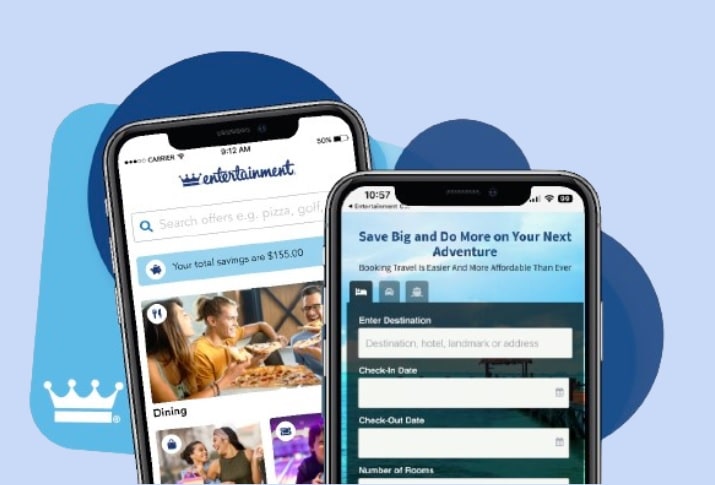
Long after many grocery coupons went digital, as retailers launched their own apps and shopping online became a national pastime, those who bought Entertainment coupon books were still tearing paper coupons out of a thick publication that took up space in a drawer or on the counter all year long.
But what a difference a couple of years can make. Two years, and two owners, after the company’s coupons went all-digital, Entertainment offers are now poised to enter a whole new era that could represent the very future of couponing.
St. Paul, Minnesota-based Kigo, described by its parent company Augeo as a “digital asset technology company,” recently announced its acquisition of Entertainment, which it says “advances Kigo’s mission to transform loyalty engagement through dynamic digital experiences.”
Translating from tech speak, what that means is that Entertainment coupons of the near future could be very different from the static, take-it-or-leave-it offers that the printed books and the Entertainment app once featured.
Kigo was founded last year, with the aim of providing blockchain-enabled, personalized, dynamic, shareable rewards and offers. The Entertainment acquisition brings tens of thousands of offers and merchant relationships into the Kigo fold, allowing it to offer and improve upon Entertainment’s coupons on its own platform. Blockchain technology will help ensure that Entertainment’s digital offers are secure and resistant to tampering or duplicating. It could also give coupon recipients the ability to share or gift an offer to someone else if the merchant allows it, creating two distinct digital coupons, each of which can be tracked separately. Coupons won’t need to have a set value – merchants can adjust them dynamically by, say, upping the value if you don’t use a coupon right away and they believe a higher incentive might tempt you to make a purchase. And coupons can be more personalized, with offers and values tailored to your needs and your purchasing habits.
It’s a far cry from the printed, one-size-fits-all book of coupons that had the same offers for every customer in a community, regardless of how many of the offers inside you were actually interested in.
And it represents a dramatic change for a coupon platform that, until recently, hadn’t changed much for some six decades. Entertainment was founded in Detroit back in 1962, and grew to feature dozens of coupon books customized by region across the country, featuring offers redeemable at local restaurants and businesses. The books became a mainstay of annual fundraisers for local schools and organizations. But after a series of ownership changes in the 1990’s and 2000’s, the company abruptly went bankrupt back in 2013, and that seemed like the end of its story.
Instead, the company came back from the brink, rescued by another new owner. But it continued on with the same printed coupon books, long after the rest of the world seemed to go digital. It took yet another ownership change for Entertainment to finally decide to quit printing books and go fully-digital with its 2022 edition.
By then, the company’s best days were arguably behind it. And more ownership changes showed that its real value was less as a standalone coupon company, and more as a vehicle that new owners could leverage to try to accomplish other goals. Cardlytics, Entertainment’s most recent owner, bought it in 2022 for $13 million, even less than it cost for the previous owners to buy the company out of bankruptcy nearly a decade earlier. Cardlytics provides card-linked offers to its partner financial institutions. In announcing the Entertainment acquisition, then-CEO Lynne Laube described a plan to “simply pump their content into our new ad servers” in hopes of attracting new bank partners to their platform.
Instead, Cardlytics cut costs at Entertainment, imposed layoffs and ended up flipping the company to Kigo less than two years later, for an undisclosed amount. And now Kigo is the one hoping to leverage Entertainment to help strengthen its own offerings.
“The integration of Entertainment into Kigo and the overarching Augeo engagement ecosystem is instrumental in driving continued growth and transformational innovation for our clients and partners,” Augeo founder and CEO David Kristal said in a statement. “It’s all about expanding opportunities for clients to elevate engagement with customers, employees, members or fans.”
So 62 years and almost as many owners later, don’t count Entertainment out. A company that once seemed a relic of the past, could end up blazing a trail toward a very different kind of digital future.
Image source: Entertainment










